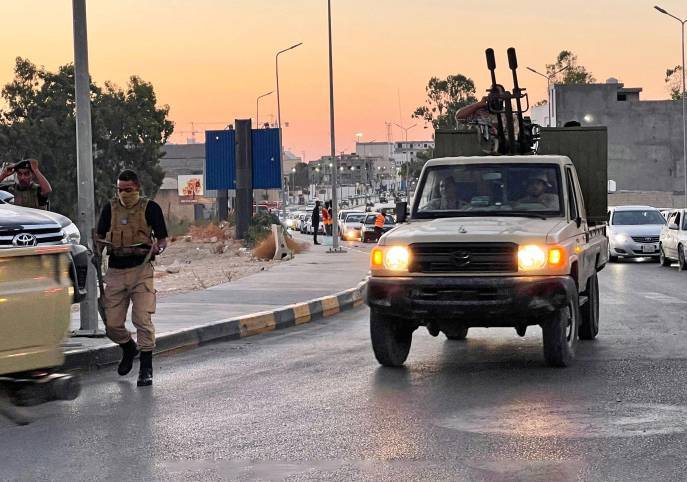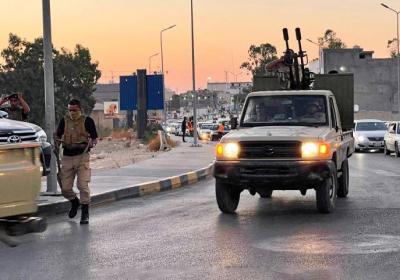The aim of a new highway intersection in a suburb of Tripoli was to showcase how the government is working to improve the lives of Libyans, but the violent clashes that erupted this week left it scattered with burned cars and empty bullet casings. The violence, which claimed the lives of 55 people around the "Return to Life" intersection, was the worst seen in Tripoli in years, extinguishing any hopes for easing the decade-long conflict and diminishing the chaos that has often disrupted oil production in the OPEC member state and turned it into a major launch point for migrants seeking to reach Europe. Prime Minister Abdel Hamid Dbeibah and the interim Government of National Unity have sought to bolster their authority through spending on social support and infrastructure, yet Libya remains torn apart by competing armed factions vying for power, similar to the situation in Sudan.
Ahmed Ibrahim, a 35-year-old graphic designer, passes by the "Return to Life" intersection on his way to work daily and hears the sounds of the clashes that erupted on Monday and intensified in the Ain Zara area where he lives. He said, "The sound of gunfire was so loud and terrifying." He added, "It's very hard to explain to your young son what's happening when you're trying to protect your family." He spoke of how he used to enjoy an easy commute to work and the benefits of government spending, such as increased electricity supply. Like many Libyans, Ibrahim is well aware of the ongoing power struggle despite apparent improvements in daily life, but the intensity of the fighting shocked him. He described the exchange of artillery shells and heavy machine gun fire as "like a nightmare."
The fighting erupted when one faction, the Special Deterrence Force, arrested a rival faction leader, Major General 444, while attempting to travel through Mitiga Airport. The airport, which armed factions covet for control along with other major state assets, is under the control of the Special Deterrence Force.
The Special Deterrence Force and most other armed factions hold semi-official positions and are paid salaries by the state, functioning as security forces in uniforms even though they ultimately answer to their leaders. However, judicial authorities have not issued any arrest warrant for Major General 444, Mahmoud Hamza, to clarify the reasons for his detention. Both factions supported Dbeibah in a violent power struggle last year. They are the strongest factions in Tripoli alongside a third faction, the Stability Support Apparatus, but they have never truly been allies. Other groups have been expelled from Tripoli.
Hamza, formerly an officer in the Special Deterrence Force, has made Major General 444 one of the strongest armed units in Libya, controlling vast areas of Tripoli and strategically important regions south of the capital. When Dbeibah attended a military parade commemorating the establishment of the Libyan army last week, hundreds of fighters from Major General 444 participated. The interim Prime Minister described them in his speech as the Libyan army.
No political leader seems capable of imposing greater control over the armed factions on behalf of the state or providing a permanent solution to the broader conflict. After nine years since the last national elections, along with a series of interim governments and transitional plans, Libyan political institutions have continued to undermine each other's legitimacy and maneuver for temporary advantages.
International diplomacy has focused on pushing the eastern-based parliament and the legislative authority in Tripoli to agree on election rules, but they have made little progress. However, both institutions are more focused on seeking to replace Dbeibah and consider him a competitor for influence and power, alongside some factions outside of Tripoli. Dbeibah has sought to consolidate his position through building new roads and improving power supplies and offering social services like financial support for newlyweds, but faction leaders have complained about corruption in public spending, a charge Dbeibah denies.
While Dbeibah and some factions are striving to strengthen their control in Tripoli, Khalifa Haftar still maintains influence in eastern Libya. The status quo may provide a semblance of calm, but this week's clashes have demonstrated how quickly such calm can be shattered.




